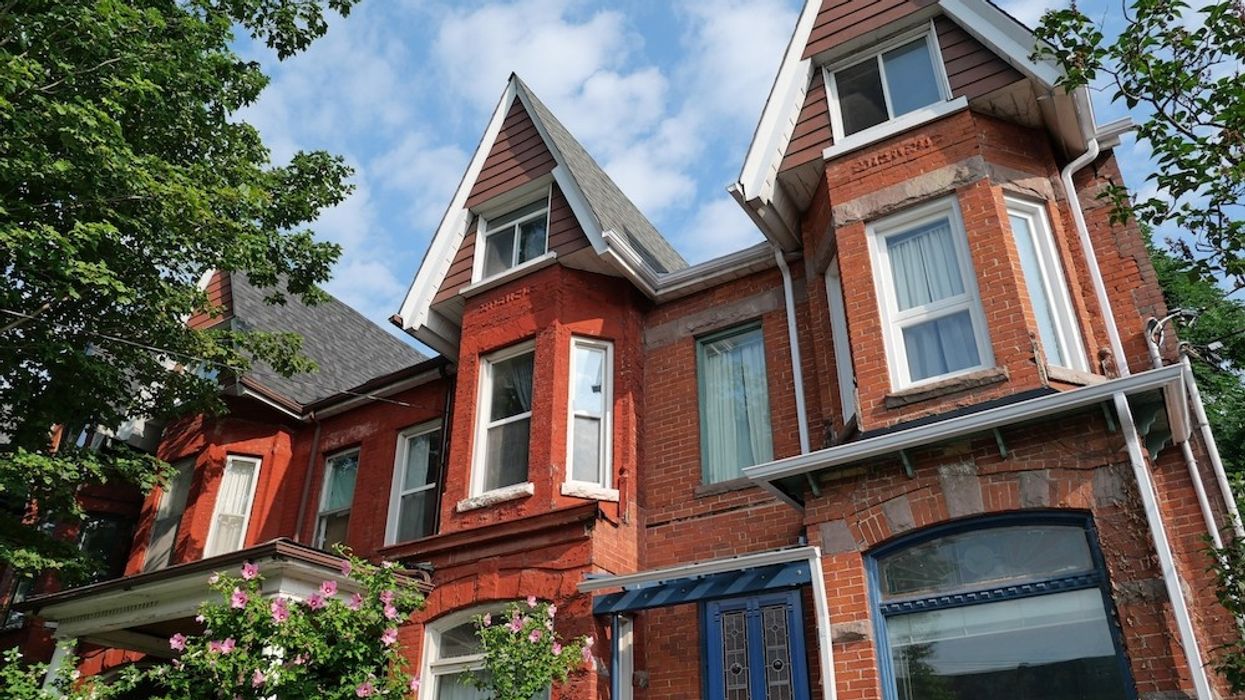There’s no sugar-coating it: Millennials and Gen Z are facing an economy and housing market that renders it difficult to make the "Great Canadian Dream" of homeownership a reality. This is especially true in notoriously expensive cities like Toronto and Vancouver. (Sigh.)
There is, however, an increasingly popular route towards homeownership. It’s called an early inheritance, and it can be about as straightforward as it sounds. In today’s challenging climate, an early inheritance offers a way for Canadian families to support younger generations. And, importantly, the option is not reserved for the privileged set either (more on that later).
Baby Boomers are set to transfer almost $1 trillion to younger Boomers, Gen Xers, and Millennials over the next decade. The concept of an early inheritance marks a shift from a traditional inheritance – whereby wealth is passed down in the event of a death – to a ‘living legacy,’ an arrangement that allows benefactors to witness the positive impact(s) of their gifts.
The Rise Of Early Inheritance In Canada
While purchasing a home is never a small feat, it’s safe to say that doing so was financially easier for aging Canadians. Over the years, home prices have climbed throughout the country, especially in urban centres and their bustling suburbs. In January 2025, the average cost of a home was $1,070,100 in Toronto and $1,173,000 in Vancouver. According to calculations from RateHub.ca, this means that the income required to purchase a home in Toronto is $223,290, and $243,300 in Vancouver.
Couple soaring prices with sky-high living expenses – which are reflected in everything from pricey gas and grocery bills through to monthly rent costs – and it’s more challenging than ever for Canadians to achieve financial milestones without assistance. And let’s not forget that wages haven’t exactly kept pace with the times.
So, "the bank of mom and dad" (and "of grandparents," too) is stepping in to help, as is reflected by the growing trend of early inheritance. A 2024 CIBC report revealed that some 31% of first-time Canadian homeowners received financial help from their parents to purchase their property; a spec that’s up 11% from 2015.
Further, a late-2023 Sun Life survey revealed that 44% of Canadian Baby Boomers surveyed intended to leave an inheritance. However, less than half (47%) had an estate plan in place, and 26% hadn't discussed their intentions with their heirs. With that said, in recent years, we’ve seen a cultural shift in openness and attitudes towards inheritance. Today, many parents and grandparents prefer to provide support during their lifetime to address immediate needs — and to enjoy the experience of giving. In other words, to offer the financial support at a time when it’s needed most: today.
READ: How ‘The Bank Of Mom And Dad’ Can Drive Today's Homeownership

Benefits Of Early Wealth Transfer
Canadians are living longer than ever before. This means that the prospect of any sort of financial help via traditional inheritance could be decades away for the younger generation, who have their sights set on owning a home and starting a family. An early wealth transfer enables a more immediate impact, allowing beneficiaries to use funds when they’re most needed and impactful to their lives.
For some families, opening up the concept of early financial gifting can even foster closer relationships, and start important conversations about financial planning and legacy. In a sense, you’ll be building something together – a secure family home – that could ultimately foster the future generation. That takes trust, understanding, and communication; all factors that can enhance the connection between family members.
What's more, for aging Canadians, knowing their family is safe and sound in a home means they can kick back and enjoy their golden years without worrying about what the future (of the ever-changing market) may hold.

How HomeBridge Can Help
In what will come as a relief for many, helping children and grandchildren achieve the dream of homeownership doesn’t require a large bank account. Even if a sizeable portion of Canadian baby boomers’ wealth is tied up in their homes, which are likely appreciating in value, they can still help their relatives enter the housing market – and they can do so without having to sacrifice their quality of life during their hard-earned retirement.
HomeBridge can help to facilitate these living legacies. With a mission to empower Canadians 55+ in establishing a living legacy through their home equity, HomeBridge is a new digital solution from HomeEquity Bank, provider of the CHIP Reverse Mortgage. HomeBridge makes it simple for Canadian homeowners 55+ to easily access their home’s equity so they can transfer their wealth and support their families.
“At HomeBridge, we understand that the idea of 'living legacies' marks a profound shift in how families plan for the future," says Steph Morgan, Managing Director of HomeBridge. “Our goal is to offer a solution that empowers Canadians to support their loved ones today, and make homeownership more accessible for years to come. By unlocking the untapped potential within their own homes, we aim to create opportunities that ensure stability and security for generations ahead.”
HomeBridge provides Canadian homeowners 55+ with access to as much as 55% of their home's current appraised value, and they can benefit from this access without impacting their cash flow or lifestyle, thanks to optional monthly payments. The balance is due only when the homeowner moves, sells the home, or passes away.1
Additionally, while HomeBridge has a loan product that accrues interest, given the extended period before the balance is due, it is likely that the homeowner's equity will increase, which can offset said interest. (And, depending on market conditions, homeowners may also benefit from appreciation while the loan is active.) On the flip side, leveraging your home equity to support children or grandchildren in entering the market means that they also get to start building their wealth. Over time, their property, too, will likely appreciate in value. In short, the loan’s accrued interest is also offset by the value of opportunity; that of entering the market (and building generational wealth) without delay.
It's also important to note that HomeBridge doesn't take any ownership on your house, so you can continue to enjoy it — and comfortably — while reaping the benefits of access to its current value.
"As we continue to navigate a challenging economic climate, HomeBridge is designed to make the option of early inheritance straightforward and accessible," adds Morgan. “It empowers the younger generation to thrive in today’s housing market, while fostering stronger family bonds and creating a meaningful legacy."
The times, they are a-changin’; so too are the ways we view inheritance and the transfer of family wealth. For those seeking to keep ahead of the curve and support the younger generation in the next step toward homeownership — and who would like to establish their own living legacy in the process — HomeBridge is here to help.
To learn more about HomeBridge, click here.
1 Subject to the terms and conditions of the CHIP Reverse Mortgage.
The information in this article is general; it is not intended as specific investment, financial, accounting, legal or tax advice for any person or persons. Professional advisors should be consulted regarding your specific situation.
The information presented in this article is believed to be reliable, factual and up to date but no representation or warranty, express or implied, is made as to its accuracy or completeness, and it should not be regarded as a complete analysis of the subjects discussed. All expressions of opinion reflect the judgment of the authors as of the date of publication and are subject to change.
______________________________________________________________________________________________________________________________
This article was produced in partnership with STOREYS Custom Studio.





















